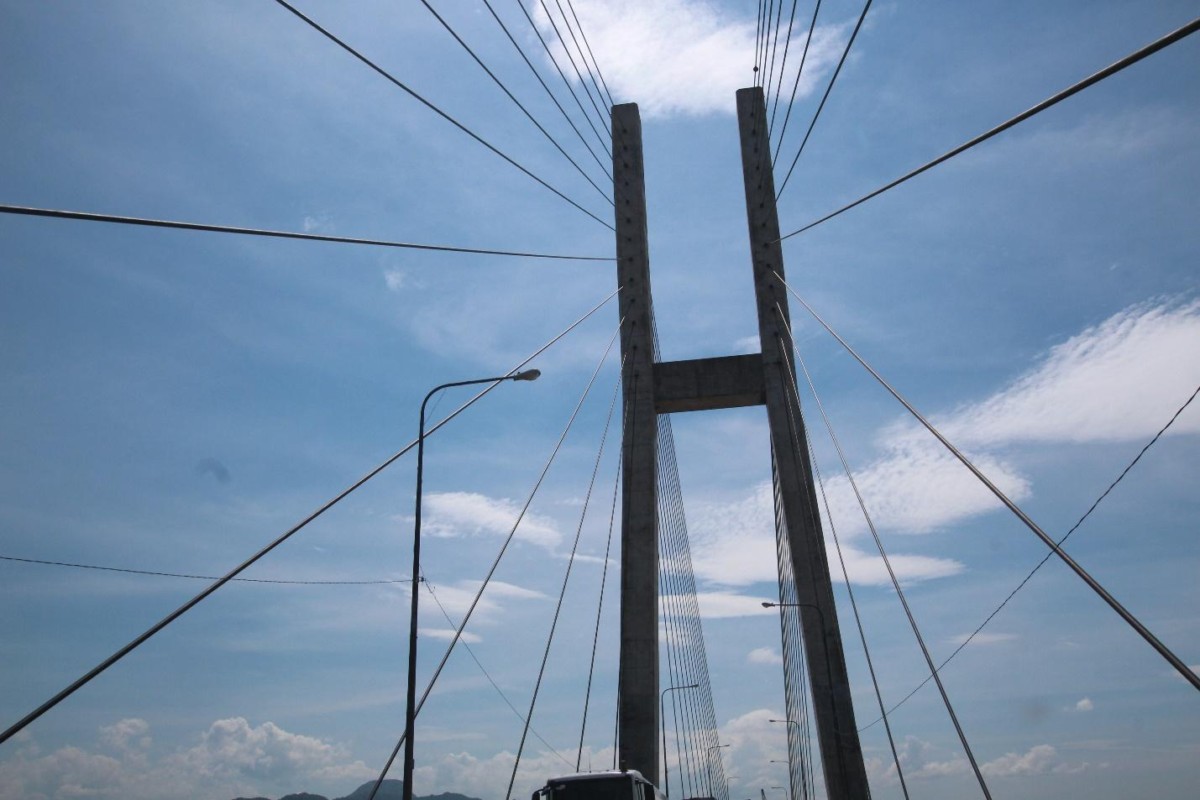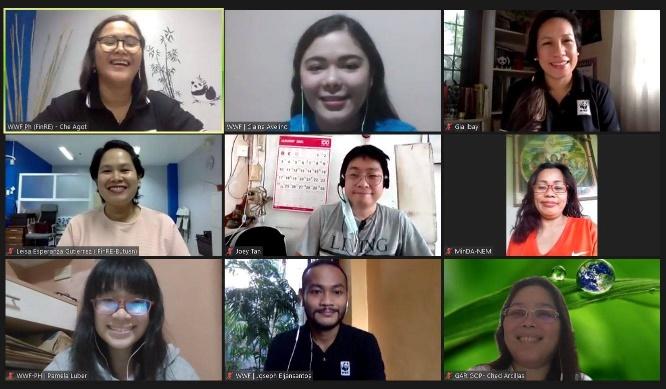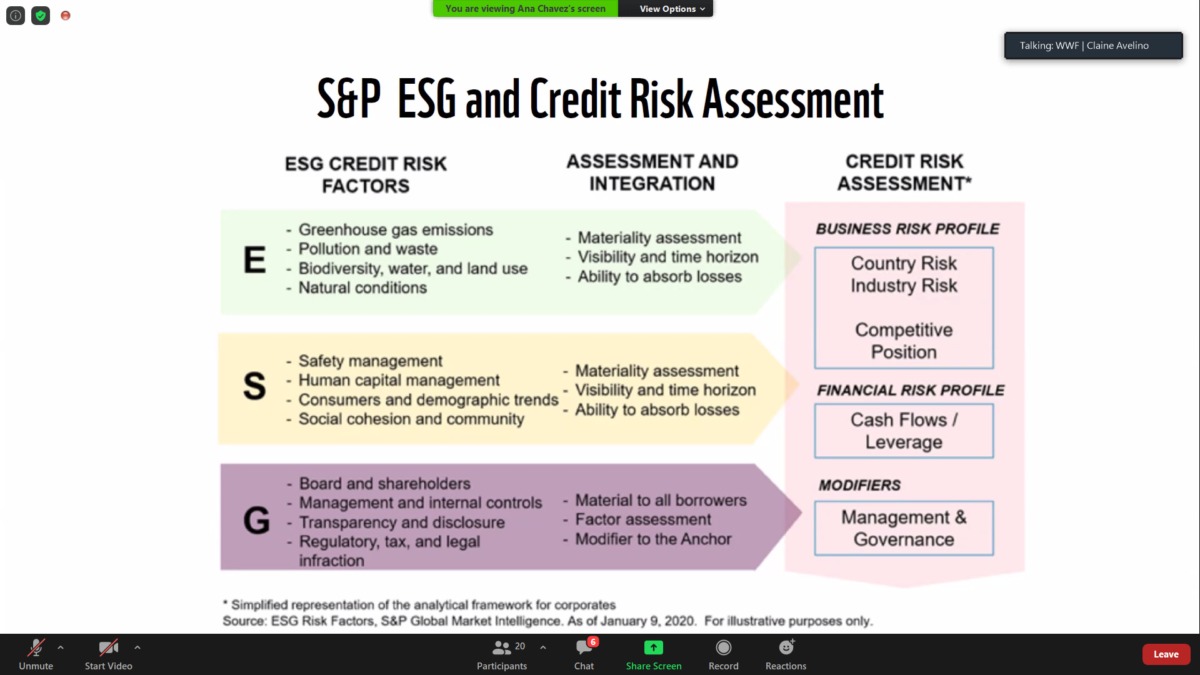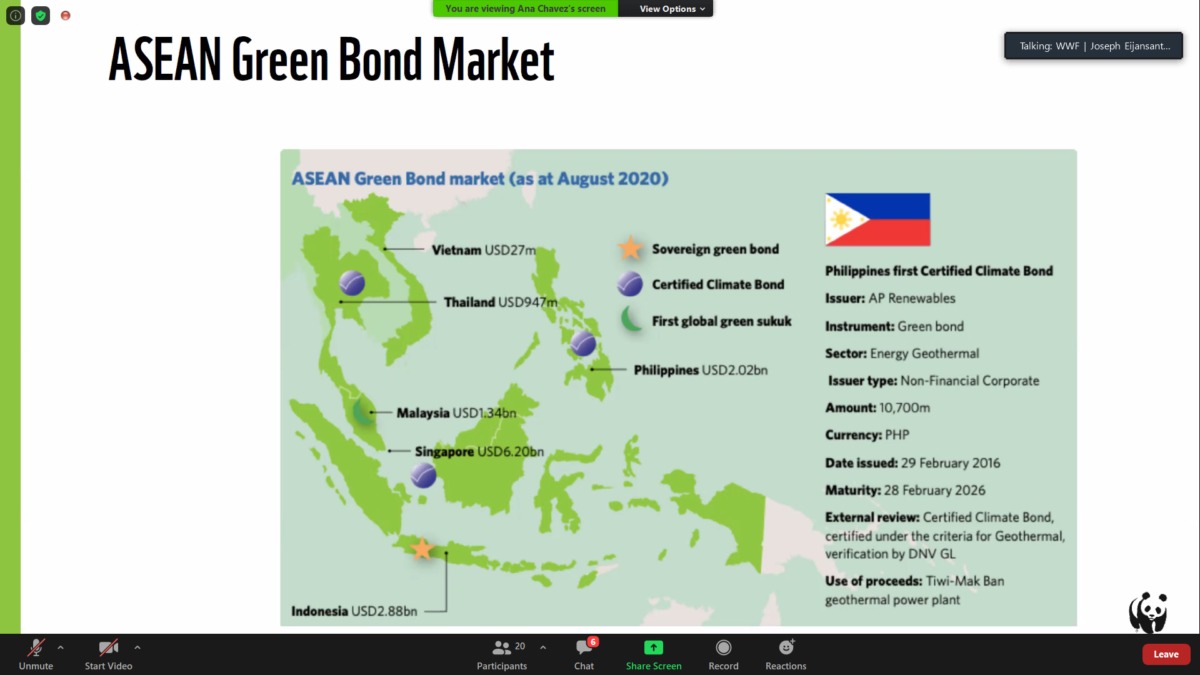WWF-Philippines Talks About Tackling ESG Risks through Finance, for a Sustainable Future
January 2021

The Diosdado Macapagal Suspension Bridge, which spans the Agusan River near Butuan City. Sustainable finance serves as the crucial bridge towards mitigating the many environmental risks faced by businesses and society on a whole. Photograph © Alo Lantin / WWF-Philippines
Philippines - The financial sector stands poised to address the risks that threaten it, and the rest of society.
On the 14th of January, 2021, the World Wide Fund for Nature (WWF) Philippines convened its project partners for a webinar on the financial management of environmental, social, and governance (ESG) risks in a world increasingly affected by climate change.
The webinar, entitled “Sustainable Finance: ESG Tools and Techniques”, was an important milestone for the Financing and Integrating Renewable Energy in Butuan City (FInRE-BXU) Project. The project empowers representatives from the public and private sectors of Butuan City, equipping them with the skills to seek out and pursue sustainable energy solutions for their home city.
First to present was WWF-Philippines Sustainable Finance Engagement Manager, Atty. Claine Avelino, who discussed ESG risks and their significance to financial institutions. Like the businesses they fund, explained Avelino, banks and financial institutions rely on a healthy environment and society, as well as an effective internal governance structure.

The WWF-Philippines team together with project partners. WWF-Philippines’ FInRE program is looking to finance renewable energy solutions for the people of Butuan City. Photograph © WWF-Philippines
Avelino also discussed various methodologies for assessing the ESG risks posed by businesses, so that they may have a better understanding of what needs addressing.
Ineffective governance and threats to the surrounding environment and to society, therefore, have an impact on the business of banks and financial institutions. These impacts can manifest as material loss for the business.
By identifying these risks and funding projects to address them, potential losses can be avoided, both for the sake of financial institutions and to broader society and the environmental landscape. In short, continued Avelino, sustainable finance is good not just for the planet, but for the business of banks and financial institutions.
“There are certain losses that you need to account for to visualize the future financial health of your business,” shared Avelino.

An example of ESG risk assessment. Many methods exist for assessing the risks posed by a business. Once those risks are identified, financial institutions can fund efforts to mitigate them. Photograph © WWF-Philippines
The prospects for sustainable finance are strong and continue to grow. WWF-Philippines Sustainable Finance Policy Manager Joseph Eijansantos shared that there are currently billions of financial opportunities for sustainable development across the globe, and that investor interest has grown sharply.
“In terms of funds, a lot of investors are now very interested in how the money being used is used in a sustainable way,” said Eijansantos.
World events such as the ongoing COVID-19 pandemic have led investors to ask hard questions about the role finance institutions can play in shaping the new normal. Financial institutions, explained Eijansantos, have the mandate to guide businesses toward newer, greener business models that support a sustainable future for all. With trillions of dollars in the market and with the sustainable finance concept becoming more mainstream, there is growing opportunity for the financial sector to usher in an environmentally-friendly business paradigm.
“This could be a major turning point in ESG investing. A lot of investors are looking at how companies’ ESG actions are doing alongside traditional financial metrics,” added Eijansantos.

An image shows green bond market sizes across the ASEAN region. Financial interest in sustainable development has grown in recent years. Photograph © WWF-Philippines
WWF-Philippines’ FInRE-BXU program is a good example of the kinds of efforts that, when funded, can address the ESG risks of banks and financial institutions while urging on green developments. In working with representatives from the Butuan City public, the project is developing healthy, democratic societal practices that seek out environmentally-friendly solutions for their home city.
“I think it will be very important for the financial sector and the business sector to understand these sustainable finance concepts because these are the trends that we are now seeing. As economies are now opening up, being sustainable not just from a financial level but from an environmental, social, and governance level is important to the health of our businesses and of everyone,” said WWF-Philippines Climate and Energy Head Atty. Angela Ibay.
As investor support for green developments continues to grow and as the financial sector explores the ESG risks they are faced with, WWF-Philippines remains committed to working with the people of Butuan in their search for sustainable energy. Support WWF-Philippines, and help bring about a future where man lives in harmony with nature.
The "Taking Deforestation out of Banking Portfolios in Emerging Markets" Project is part of the International Climate Initiative (IKI). The Federal Ministry for the Environment, Nature Conservation, and Nuclear Safety (BMU) supports this initiative on the basis of a decision adopted by the German Bundestag.
For more information, please contact:
Cheerylyn Agot
FinRE-BXU Project Manager
cagot@wwf.org.ph
Joseph Eijansantos
Sustainable Finance Policy Manager
jeijansantos@wwf.org.ph
Atty. Diosie Claine Avelino
Sustainable Finance Engagement Manager
dcavelino@wwf.org.ph
For media arrangements, please contact:
Ms. Chezka Guevarra
Public Relations, Media, and Events Assistant Manager
cguevarra@wwf.org.ph
